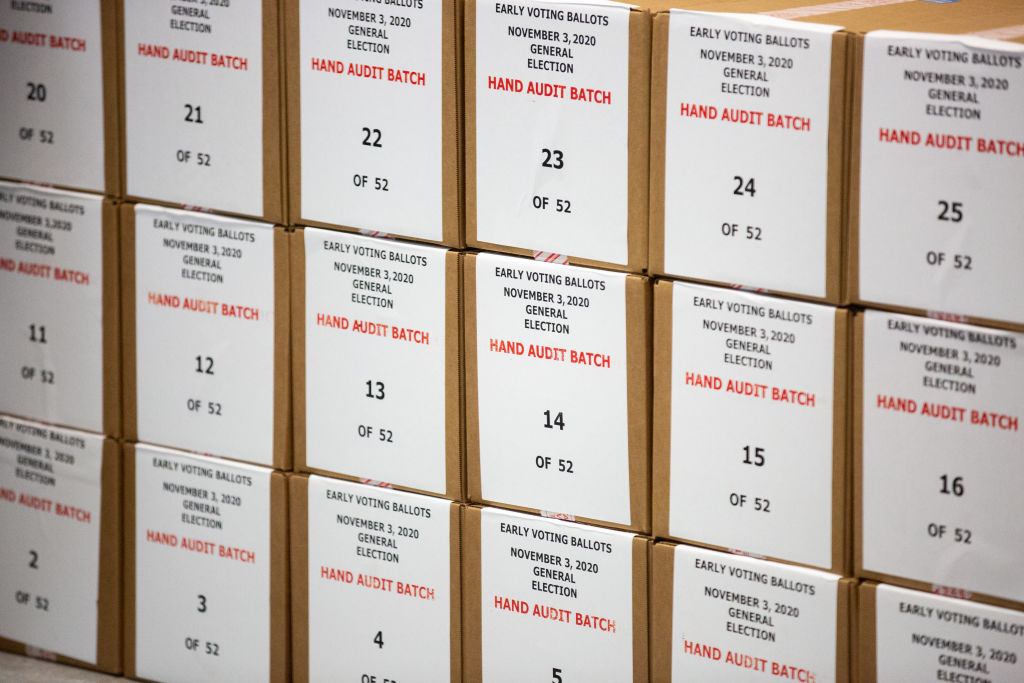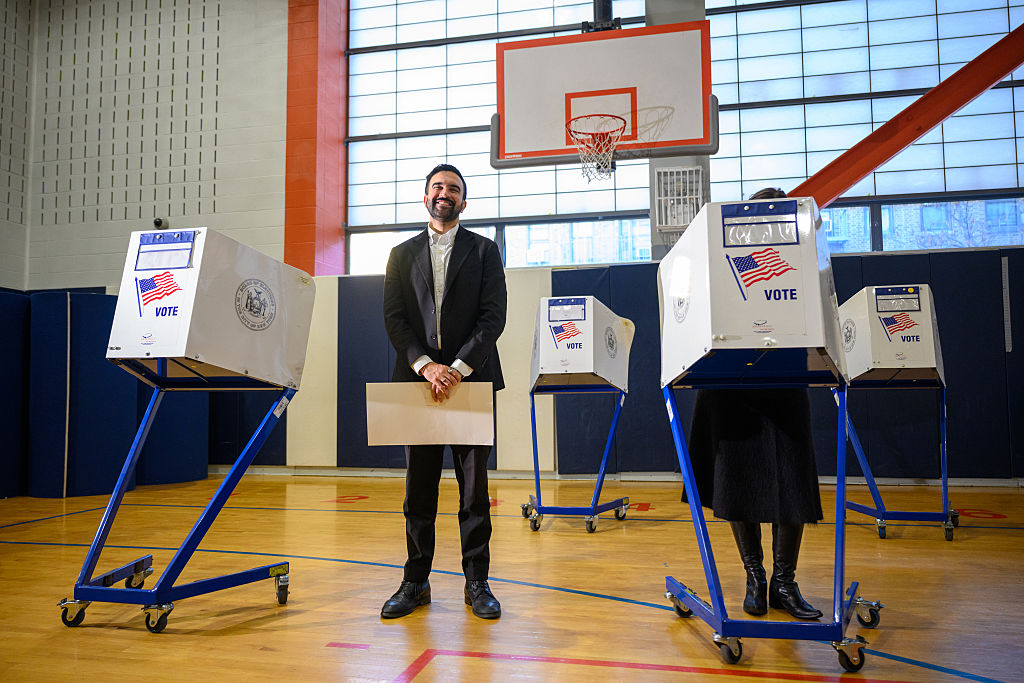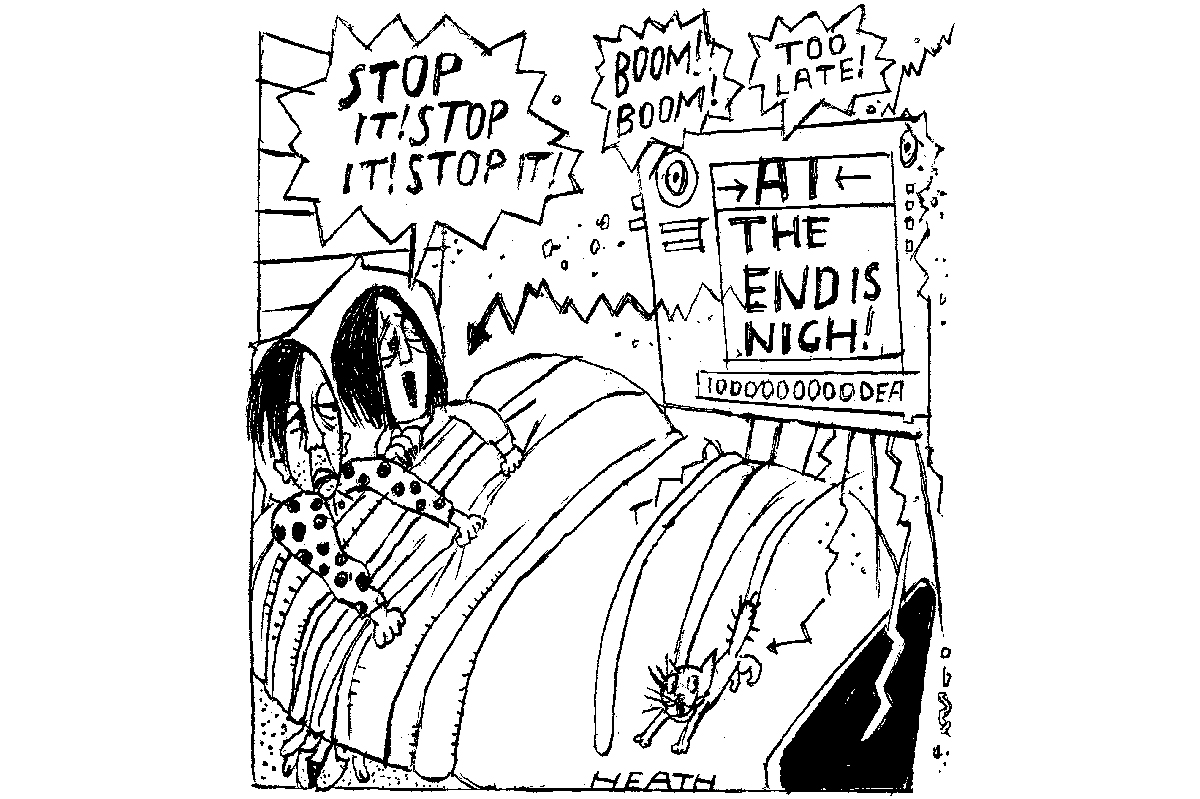Election audits of the 2020 election are under attack in the media.
It’s easy to see why some calls for audits have drawn criticism.
But audits can serve a very useful purpose. Glenn Youngkin, the Virginia Republican nominee for governor, is calling for an ‘audit’ of the state’s voting machines. The former co-CEO of the Carlyle group says: ‘I grew up in a world where you have an audit every year, in businesses you have an audit. So let’s just audit the voting machines, publish it so everybody can see it.’
Kari Lake, a former Phoenix news anchor whose candidacy for governor of Arizona has been endorsed by Donald Trump, said she would not have certified the 2020 election results in the state. She cited ‘serious irregularities and problems with the election’.
What she didn’t do was directly allege fraud — and that was smart. The official results showed Trump lost Arizona by some 10,000 votes out of some 3.4 million votes cast. A just-released forensic audit of Maricopa County’s result ordered by the GOP-controlled Arizona State Senate recounted about 2.1 million ballots cast in the county. It found 261 fewer ballots for Trump and 99 more for Biden than county had, prompting critics to declare the audit both irresponsible and a waste of time.
No one should now doubt that the final vote tabulation shows that Biden won the state. But critics of the audit either don’t understand the purpose of an audit or are trying to deliberately obscure the fact the Arizona audit turned up some worrying findings that should be used to avoid problems in future elections.
One of us has been a former county election official for large jurisdictions in both Georgia and Virginia. Recounts — what the Arizona audit was — almost always only show slight differences from the original ballot tabulation. The fact that the hand recount in Maricopa County matched the machine recount simply means that the computer scanners used to scan and tabulate paper ballots were working properly. A recount simply recounts the ballots that were cast — a recount does not investigate, examine or review the legitimacy of those ballots.
A recount does not verify or check whether ballots were cast by registered voters who are actually deceased; who do not actually live where they claim to live; who cast multiple votes because they are registered more than once; or who are not entitled to vote even though they are registered because they are not US citizens or are felons who have not yet had their right to vote restored.
A simple example illustrates this problem. If a homeowners’ association has an election and the new president wins with 51 out of 100 votes, a recount will no doubt confirm that she received 51 votes. But it will not reveal whether 5 of her 51 votes were cast by individuals who falsely claimed to live in the neighborhood when they actually live elsewhere.
Volume III of the Maricopa audit lists some disturbing findings. That includes 23,344 ‘mail-in ballots voted from a prior address’; 9,041 ‘more ballots returned by voter than received’; 5,295 ‘voters that potentially voted in multiple counties’; 2,592 ‘more duplicates than original ballots’; and 2,382 ‘in-person voters who had moved out of Maricopa County’.
Numerous other problems are listed, such as voters whose ballots were counted despite the fact that they registered to vote after the state deadline for registration had already passed.
These are serious potential problems that should be investigated with the help of law enforcement. For example, the individual voter files of the 5,295 ‘voters that potentially voted in multiple counties’ should be pulled, and each voter should be investigated to determine if they have multiple registrations and, in fact, illegally cast more than one vote in the 2020 election.
Contrary to what some passionate backers of Donald Trump seem to believe, the purpose of an audit is not to overturn an election. It is too late to do so. Every state has election laws that provide very short deadlines for a losing candidate to contest the outcome of an election. That deadline has long expired in Arizona and every other state.
Instead, audits are intended to determine whether voting machines worked properly; whether applicable state and federal laws and regulations were followed; whether the voter registration list was accurate and up-to-date and only allowed eligible individuals to vote; and whether all eligible voters were able to vote, that their vote was properly counted, and that their votes were not voided or nullified by fraud, mistakes, or errors.
The results of such an election audit can then be used to correct any compliance issues, to prosecute anyone who engaged in intentional misconduct that violates state or federal election laws, to change election administration procedures that led to errors and mistakes by election officials, and to provide legislators with the information they need to make needed amendments to election laws to make sure any problems that were found do not reoccur in future elections.
What is most disturbing about the reaction to the audit report is that so many seem to think that this is the end of the review process, since the hand recount showed that Biden won and, thus, nothing else needs to be done. This attitude is especially disturbing in Maricopa County election officials, who from the very start have done everything they could to obstruct the audit and who are now claiming that since their ‘canvass’ was accurate, they don’t need to do anything else.
That attitude is wrong. The audit seems to have revealed that sloppy, careless and chaotic procedures were utilized in Maricopa County during the last election. Officials there have a duty to not only investigate all of the potential problems the audit found, such as potential multiple registrations by the same individual, but to correct their procedures and implement better training for their election workers to ensure that such problems, if confirmed, do not happen again.
Opposing the conduct of election audits is unwise and unjustified. Audits are a routine occurrence in the business world for good reason. Conducting random or comprehensive audits after an election in every state should also be routine.
Contrary to the bizarre claim of election officials in Harris County, Texas, that audits are ‘an attack by officials on our communities’ trust in elections’, audits are a form of transparency, ensuring the security of the election process and improving the confidence of the public in the integrity of elections.
We can agree that President Biden is the legal winner of the 2020 election. We should also agree that the serious problems that occurred surrounding it need to fixed if we are to avoid a potential conflict over the 2024 results.

























